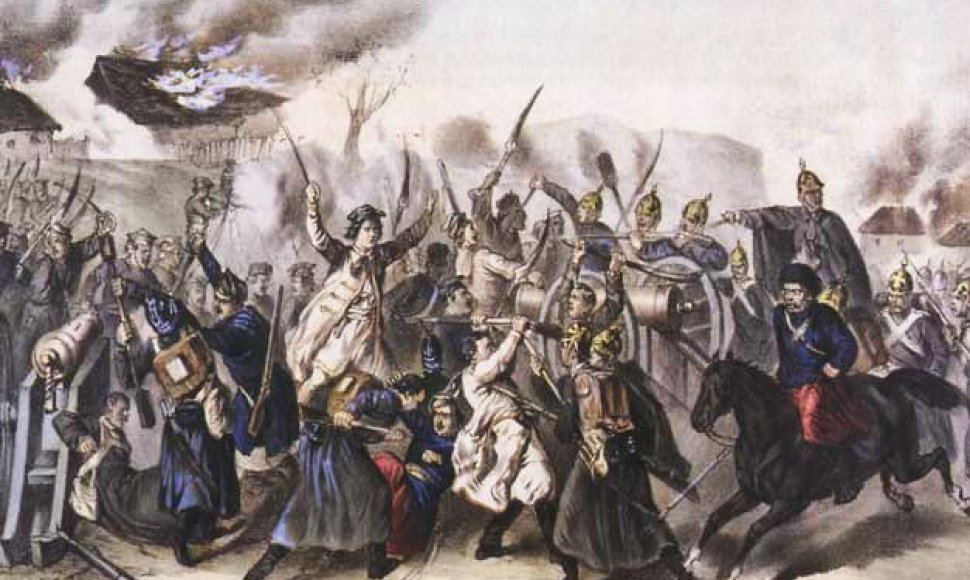According to a draft government resolution on the commemoration of the January Uprising, the Lithuanian National Museum is assigned to make a documentary that will be broadcast on Lithuanian TV channels and distributed via the country's museums.
Meanwhile local authorities will have to mark locations related to the January Uprising, including battlefields, monuments, burial sites of rebels, a well as tend to already marked locations and monuments.
Commemorative events will also include several international scholars' conferences, exhibitions, and other events related to the January Uprising.
The Bank of Lithuania will issue a commemorative coin, and the Ministry of Transport will issue a special postal stamp.
The Lithuanian Seimas has declared 2013 the Year of the January 1963 Uprising.
The January Uprising was an insurrection in the former Polish-Lithuanian Commonwealth (present-day Poland, Lithuania, Belarus, Latvia, parts of Ukraine, western Russia) against the Russian Empire. It began on 22 January 1863 and was put down by the Russian army in the fall of 1864. The last insurgents were captured in 1865.
Following the uprising, the tsarist Russia stepped up oppression, banned the Lithuanian press and alphabet. However, the Russian Empire failed to suppress the Lithuanian national revival that led to the restoration of the State of Lithuania after World War I.












